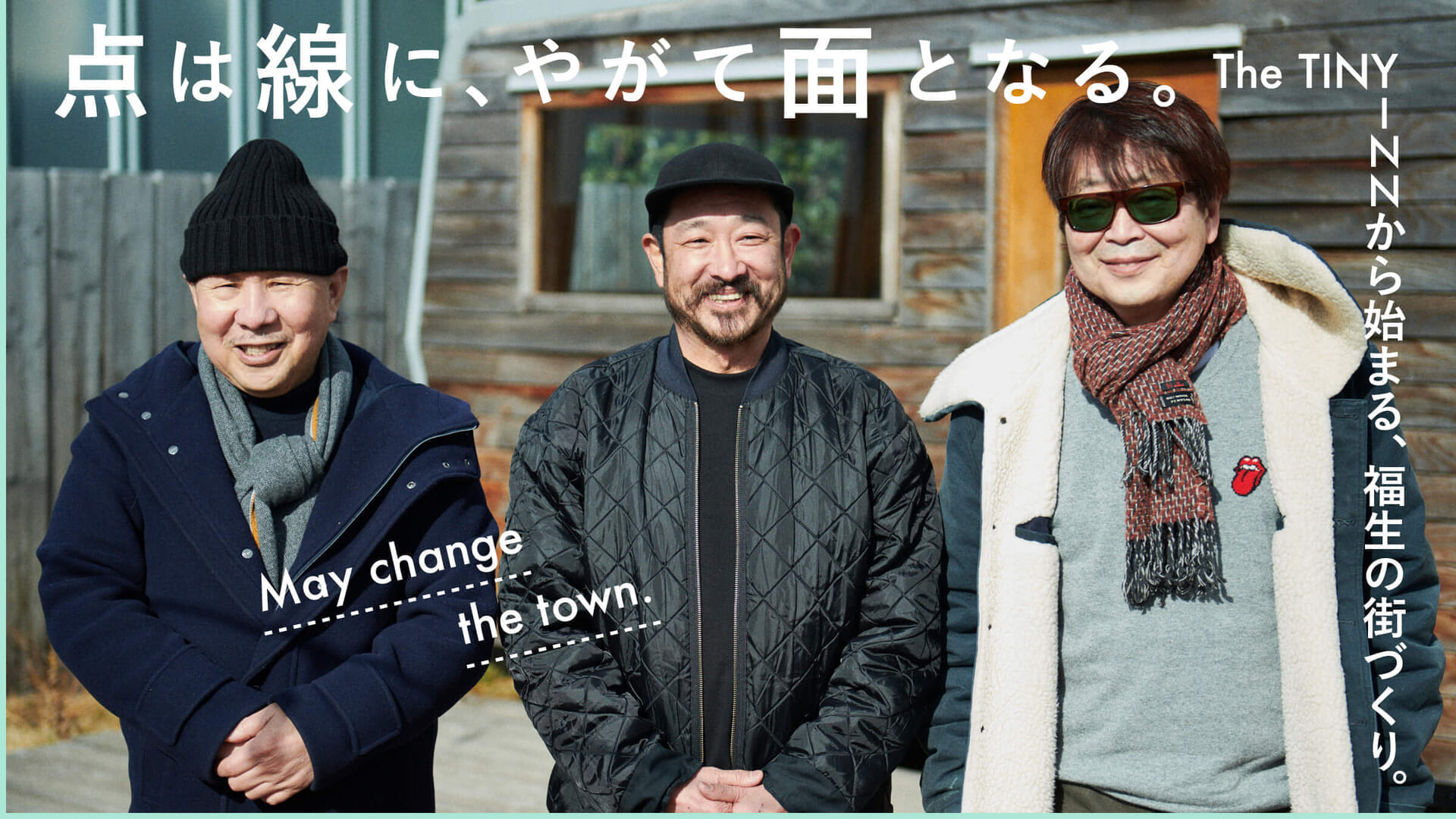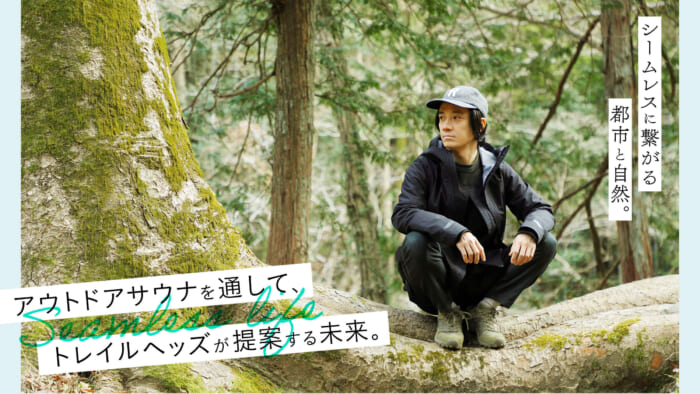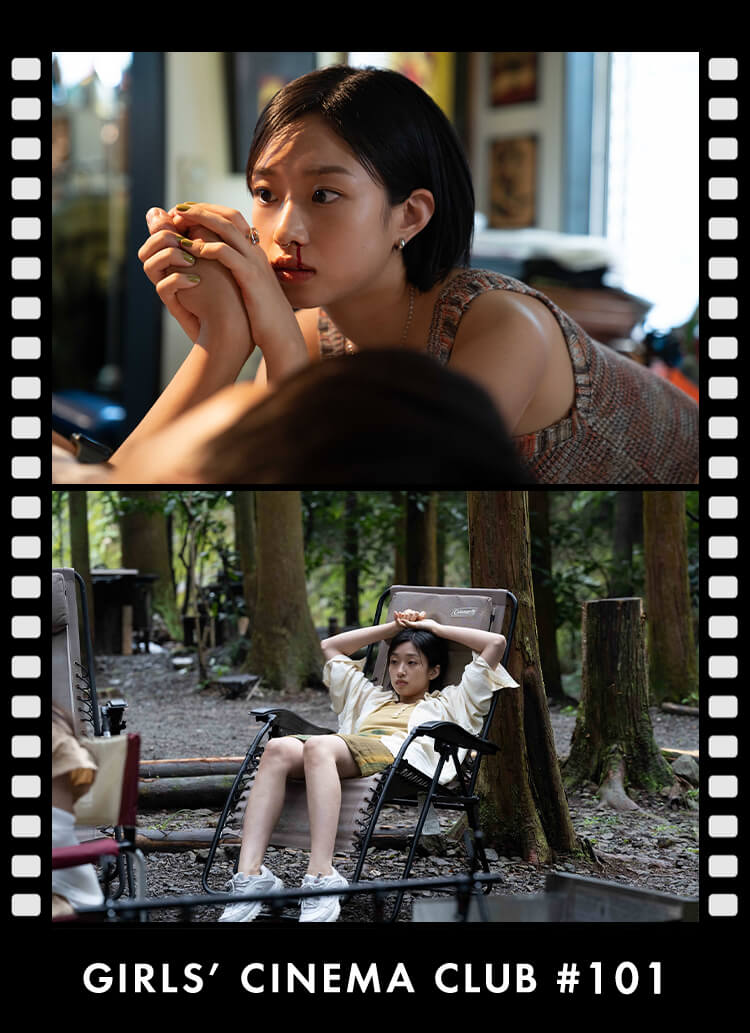If you don't row the oars as hard as you can, the boat won't reach its destination.
Sato-san, you were born and raised in Fussa, right?
Sato:When I was young, I hated to say I was from Fussa. When people would ask me, "Where do you live? I couldn't say "Fussa" very proudly....

Ryoma Sato (Deputy Director, NPO "FLAG") Born and raised in Fussa , he gained many years of experience in advertising design and marketing work in the city center. He founded the non-profit organization "FLAG", which produces urban design, community development, community revitalization projects and town planning using local resources, and U.S. military houses, and will open "Delta EAST" in Fussa in 2019, including the accommodation facility "The TINY INN".
Even so, you created "The TINY INN" and "Delta EAST" because you were attracted to the city of Fussa.
Sato:Fussa is not dangerous, but it has a slightly delinquent and illigal image, doesn't it? . That is sometimes seen as the charm of this city, isn't it? . But although there was such an underground culture, I think it was difficult to develop people who could make a business out of cultural things because they were not good at business.
. But, these days, the world has changed in many ways. When I went to Portland, U.S.A., I saw the city full of companies and small businesses that were created with friends, and I saw people living vibrantly, making the most of their individuality and doing interesting businesses. I hoped that Fussa would become a town where such things could be done more and more, so I consulted with Hiroyuki Inomata of "Car-Life Service Tama Sharyo" and we decided to start a joint business. Furthermore, Car Life Service Tama Sharyo was able to receive support from the Nature Tokyo Experience, a program of the Tokyo Convention and Visitors Bureau. Anyway, we didn't have any money, so we decided to try it ourselves first, and "The TINY INN" took shape.
The TINY INN" is a mobile hotel that utilizes a tiny house. The TINY INN is a mobile hotel in the form of a tiny house, and since we want guests to enjoy the town of Fussa from this base, we have kept the furnishings simple with only the essentials: beds, toilets, showers, and air conditioning. The room can accommodate up to two people, and the regular rate per person is 3,500 yen on weekdays and 15,000 yen on weekends, except during the high season.
Adjacent to "The TINY INN" is "Delta EAST" with five food trucks. One of them is "DOSUKOI PIZZA" run by Mr. Sato. He serves New York-style pizza and is so good at it that he helped start a popular pizza restaurant that opened in Tokyo last year. We selected the most popular pepperoni whole pizza with extra pepperoni topping (4,900 yen) and talked with him while eating it.
You are right, there is an atmosphere here similar to that of Portland. Since you have been here for 3 years, have your feelings changed from when you started?
Sato:Up until now, we have built a hotel in Kyoto and planned and produced a beach house in Okinawa, but in the end, it was someone else's store or business, and this is the first time we are doing it ourselves. . Hearing about it from information is one thing, but actually experiencing it is quite another. When you buy a boat and row it yourself, it's like how heavy those oars are and how scary the ocean can be at night. You have to row really hard to get where you want to go (laughs), and I feel those things in real life every day. Fussa is a very hip and interesting town, but when it comes to actually opening a store, it's a completely different story.

Takeshi Nakajima (Chairman and President of "KIWA CORPORATION")
Born in 1948, he opened antique furniture, apparel, and restaurant in Fussa in the 1980s and became a popular restaurant.
Currently, the company operates about 360 stores in Japan and abroad, including restaurants such as "Benihora Gyoza-bo", stores selling antiques, and hotels and inns in Kyoto, Kanazawa, and other cities.
Nakajima:After all, as someone who has been in the restaurant industry for a long time, I think you have to keep thinking and thinking about how to sell 100 pizzas a day at this place. . I have to do something that will get people talking about it. I can't afford to be lukewarm about it. When I opened a store in this area of Fussa, I went out to the store every day to check on things.
Sato:I can certainly understand your sentiments very well. (Like President Takeshi Nakajima, when he arrives at a site, the atmosphere becomes more relaxed, and I want to value both his personality and his ability to be admired by those around him.
However, our business was not well funded, so we had to do all the DIY work ourselves, including decorating the food truck. We were trying to figure out how to do cool things without spending a lot of money, and how to eliminate the need to spend a lot of money. The same is true of "Delta East" and "The TINY INN," but if something is missing, we can make it ourselves. I feel that this DIY spirit has become a clear part of the place's appeal.

Teruo Kurosaki (Founder of IDÉE, current President of Ryuseki Creative Group) . Born in 1949. . He established "IDÉE" and has greatly influenced the culture of Japanese living environment. Since then, he has created "places" such as "Farmers Market @ UNU," "246Common (now closed)," "IKI-BA," and "Midori-so," injecting new values and culture into society.
Kurosaki:In such a situation where people are poor but have dreams, creativity such as ideas and imagination is necessary. For example, there are people who live in this area who are poor but are very interesting when you talk to them, or people who are so unknown that they cannot make a living with their art, but whose works are good. There are many such people in this area who are not artists, or who are still in the doldrums, and if we can interact with them and unite them, that will be an asset.
By having such interesting things, we can create a situation where people from all walks of life, regardless of whether they are interesting, rich, or poor, can come together. I always say "create a situation," and this is achieved through the power of information and people, the architecture and interior design of the facility, and food. A situation is created by a combination of various factors.
The menu at Chee Chee Chee CHICKEN/77 Chicken Restaurant is all about chicken. Clockwise from top left: chicken pho (1,200 yen), chicken bahn mi (1,000 yen), chicken wings with lemon & pepper and honey mustard 6p (1,000 yen).
You said that you don't just create a "place" but also a "situation" that takes place there.
Kurosaki:People are very important in creating a "situation. There are many people who are funny but tacky, but if they are just funny, they will not attract people. On the other hand, if there is cheap and delicious food, people will come, but they will not be nurtured, and that will be the end of it. There has to be something more essential to it, something that moves people's hearts. Or, what is it? Or, what is it?
For example, in Fussa, we have antiques, so we could add to that and include architecture, design, music, etc. . I think it would be good if there were a movement in this neighborhood where everyone could come together comprehensively, share ideas, and expand on what is good. . It is not enough to think about such things alone; things will change when three, five, or ten people get together and start thinking about it.










